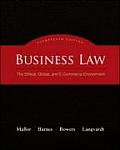Solution Manual for Selling: Building Partnerships 10th Edition
$35.00 Original price was: $35.00.$26.50Current price is: $26.50.
Solution Manual for Selling: Building Partnerships 10th Edition
This is completed downloadable of Solution Manual for Selling: Building Partnerships 10th Edition

Product Details:
- ISBN-10 : 1259573206
- ISBN-13 : 978-1259573200
- Author: Stephen Castleberry, John Tanner
Selling: Building Partnerships, Tenth Edition remains the most innovative textbook in sales, featuring distinct role-plays, mini-case studies, and a focus on knowledge and skills critical to the partnership process and successful business professionals. Emphasized throughout is the need for salespeople to be flexible and adapt strategies that address customer needs, buyer social styles, and other relationship needs and strategies. This approach is followed by a thorough discussion of the salesperson as manager and how planning and continual learning enable effective selling and career growth. The text’s emphasis on value creation makes it applicable for students who may not be interested in a sales career. As has been true of every edition since the first, the integration of ethics continues to be emphasized.
New to This Edition●The textbook includes original examples written specifically for this edition.●New chapter-opening profiles spotlight real salespeople.●New Building Partnerships boxed features provide detailed examples for chapter material.●Chapters have been updated with the latest academic and industry research in areas such as ethics, corporate culture, success characteristics, and job trends.●New Sales Technology features appear in every chapter, illustrating the technology used as well as the challenges technology creates. The book also introduces the Internet of Things and examines its influence on repurchase behavior and customer relationships. ●All new From the Buyer’s Seat boxed features aid future salespeople in understanding the buyer’s point of view.●New role-plays are included, featuring Purina ONE SmartBlend and Gartner Consulting.●Each chapter includes a new or significantly revised minicase as well as favorite minicases from which instructors can select.
Table of Content:
- Chapter 1 Selling and Salespeople
- Why Learn about Personal Selling?
- Everyone Sells
- Creating Value: The Role of Salespeople in a Business
- What Do Salespeople Do?
- Client Relationship Manager
- Account Team Manager
- Supply Chain Logistics and Channel Manager
- Information Provider to Their Firm
- Types of Salespeople
- Selling and Distribution Channels
- Describing Sales Jobs
- The Sales Jobs Continuum
- Examples of Sales Jobs
- Characteristics of Successful Salespeople
- Self-Motivated
- Dependability and Trustworthiness
- Integrity and Ethical Sales Behavior
- Customer and Product Knowledge
- Analytical Skills and the Ability to Use Information Technology
- Communication Skills
- Flexibility and Agility
- Creativity
- Confidence and Optimism
- Emotional Intelligence
- Are Salespeople Born or Made?
- Rewards in Selling
- Independence and Responsibility
- Financial Rewards
- Management Opportunities
- The Building Partnerships Model
- Selling Yourself
- Summary
- Key Terms
- Ethics Problems
- Questions and Problems
- Case Problems
- Role Play Case
- Additional References
- Part 1 Knowledge and Skill Requirements
- Chapter 2 Ethical and Legal Issues in Selling
- Ethics and Selling
- The Evolution of Selling
- Ethics and Partnering Relationships
- Factors Influencing the Ethical Behavior of Salespeople
- Selling Ethics and Relationships
- Relationships with Customers
- Relationships with the Salesperson’s Company
- Relationships with Colleagues
- Relationships with Competitors
- Legal Issues
- Uniform Commercial Code
- Misrepresentation or Sales Puffery
- Illegal Business Practices
- International Ethical and Legal Issues
- Resolving Cultural Differences
- Legal Issues
- Selling Yourself
- Summary
- Key Terms
- Questions and Problems
- Case Problems
- Role Play Case
- Additional References
- Chapter 3 Buying Behavior and the Buying Process
- Why People Buy
- Types of Customers
- Manufacturers
- Resellers
- Government Agencies
- Institutions
- Consumers
- Organizational Buying and Selling
- Complexity of the Organizational Buying Process
- Derived versus Direct Demand
- How Do Organizations Make Buying Decisions?
- Steps in the Buying Process
- Creeping Commitment
- Types of Organizational Buying Decisions
- New Tasks
- Straight Rebuys
- Modified Rebuys
- Who Makes the Buying Decision?
- Users
- Initiators
- Influencers
- Gatekeepers
- Deciders
- Supplier Evaluation and Choice
- Organizational Needs and Criteria
- Individual Needs of Buying Center Members
- Supply Chain Management and Professional Purchasing
- Supply Chain Management
- Multiattribute Model of Product Evaluation and Choice
- Performance Evaluation of Characteristics
- Importance Weights
- Overall Evaluation
- Value Offered
- Supplier Selection
- Implications for Salespeople
- Selling Yourself
- Summary
- Key Terms
- Ethics Problems
- Questions and Problems
- Case Problems
- Role Play Case
- Additional References
- Chapter 4 Using Communication Principles to Build Relationships
- Building Relationships through Two-Way Communication
- The Communication Process
- Communication Breakdowns
- Sending Verbal Messages Effectively
- Choice of Words
- Voice Characteristics
- Stories
- Keep Open Lines of Communication
- Active Listening
- Repeating Information
- Restating or Rephrasing Information
- Clarifying Information
- Summarizing the Conversation
- Tolerating Silences
- Concentrating on the Ideas Being Communicated
- Reading Nonverbal Messages from Customers
- Body Angle
- Face
- Arms
- Hands
- Legs
- Body Language Patterns
- Sending Messages with Nonverbal Communication
- Using Body Language
- The Role of Space and Physical Contact
- Appearance
- Communicating via Technology
- Telephone and Voice Mail
- Text Messages and E-mail
- Social Media
- Adjusting for Cultural Differences
- Selling Yourself
- Summary
- Key Terms
- Ethics Problems
- Questions and Problems
- Case Problems
- Role Play Case
- Additional References
- Chapter 5 Adaptive Selling for Relationship Building
- Types of Presentations
- Standard Memorized Presentation
- Outlined Presentation
- Customized Presentation
- Adaptive Selling and Sales Success
- Adaptive Selling: The Importance of Knowledge
- Product and Company Knowledge
- Knowledge about Sales Situations and Customers
- How to Create Knowledge
- Retrieving Knowledge from the Knowledge Management System
- The Social Style Matrix: A Training Program for Building Adaptive Selling Skills
- Dimensions of Social Styles
- Categories of Social Styles
- Identifying Customers’ Social Styles
- Social Styles and Sales Presentations
- Versatility
- Recap: The Role of Knowledge in Adapting
- Systems for Developing Adaptive Selling Skills
- Selling Yourself
- Summary
- Key Terms
- Ethics Problems
- Questions and Problems
- Case Problems
- Role Play Case
- Additional References
- Part 2 The Partnership Process
- Chapter 6 Prospecting
- The Importance of Prospecting
- Characteristics of a Good Prospect
- Does a Want or Need Exist?
- Does the Lead Have the Ability to Pay?
- Does the Lead Have the Authority to Buy?
- Can the Lead Be Approached Favorably?
- Is the Lead Eligible to Buy?
- Other Criteria
- How and Where to Obtain Prospects
- Satisfied Customers
- Endless-Chain Method
- Networking and Center of Influence
- Social Media
- Other Internet Uses
- Marketing Department
- Shows, Fairs, and Merchandise Markets
- Webinars and Seminars
- Lists and Directories
- Databases and Data Mining
- Cold Calling
- Spotters
- Inside Salespeople
- Expertise
- Sales Letters
- Other Sources of Leads
- Lead Qualification and Management Systems
- Overcoming a Reluctance to Prospect
- Selling Yourself
- Summary
- Key Terms
- Ethics Problems
- Questions and Problems
- Case Problems
- Role Play Case
- Additional References
- Chapter 7 Planning the Sales Call
- Why Plan the Sales Call?
- Obtaining Precall Information
- The Prospect/Customer as an Individual
- The Prospect’s/Customer’s Organization
- Sources of Information
- Resources within Your Company
- The Internet and Social Media
- Secretaries and Receptionists
- Noncompeting Salespeople
- Traditional Secondary Sources
- The Prospect
- Other Sources
- Setting Call Objectives
- Criteria for Effective Objectives
- Setting More Than One Call Objective
- Setting Objectives for Several Calls
- Buyers Are Setting Goals Also
- Making an Appointment
- The Right Person
- The Right Time
- The Right Place
- Cultivating Relationships with Subordinates
- Telephoning for Appointments
- Additional Planning
- Selling Yourself
- Summary
- Key Terms
- Ethics Problems
- Questions and Problems
- Case Problems
- Role Play Case
- Additional References
- Chapter 8 Making the Sales Call
- Making a Good Impression
- Waiting for the Prospect
- First Impressions
- Selecting a Seat
- Getting the Customer’s Attention
- Developing Rapport
- When Things Go Wrong
- Identifying the Prospect’s Needs: The Power of Asking Questions
- Asking Open and Closed Questions
- Spin® Technique
- Reiterating Needs You Identified before the Meeting
- Additional Considerations
- Developing a Strategy for the Presentation
- Offering Value: The Solution to the Buyer’s Needs
- Relating Features to Benefits
- Assessing Reactions
- Building Credibility during the Call
- Selling to Groups
- Selling Yourself
- Summary
- Key Terms
- Ethics Problems
- Questions and Problems
- Case Problems
- Role Play Case
- Additional References
- Chapter 9 Strengthening the Presentation
- Characteristics of a Strong Presentation
- Keeps the Buyer’s Attention
- Improves the Buyer’s Understanding
- Helps the Buyer Remember What Was Said
- Offers Proof of the Salesperson’s Assertions
- Creates a Sense of Value
- How to Strengthen the Presentation
- Verbal Tools
- Visual Tools
- Product Demonstrations
- Handouts
- Written Proposals
- Value Analysis: Quantifying the Solution
- Dealing with the Jitters
- Selling Yourself
- Summary
- Key Terms
- Ethics Problems
- Questions and Problems
- Case Problems
- Role Play Case
- Additional References
- Chapter 10 Responding to Objections
- The Goal Is to Build Relationships and Sell Value
- When Do Buyers Raise Objections?
- Setting Up an Initial Appointment
- The Presentation
- Attempting to Obtain Commitment
- After the Sale
- Common Objections
- Objections Related to Needs
- Objections Related to the Product
- Objections Related to the Source
- Objections Related to the Price
- Objections Related to Time
- Other Objections
- Behaviors of Successful Salespeople
- Anticipate Objections
- Forestall Known Concerns
- Relax and Listen—Do Not Interrupt
- Evaluate Objections
- Always Tell the Truth
- Effective Response Methods
- Direct Denial
- Indirect Denial
- Compensation Method
- Referral Method
- Revisit Method
- Acknowledge Method
- Postpone Method
- Using the Methods
- Confirming That the Objection Has Been Answered
- Objections When Selling to a Group of Buyers
- The Price Objection
- Use Up-to-Date Information
- Establish the Value
- Use Communication Tools Effectively
- Dealing with Tough Customers
- Selling Yourself
- Summary
- Key Terms
- Ethics Problems
- Questions and Problems
- Case Problems
- Role Play Case
- Additional References
- Chapter 11 Obtaining Commitment
- Securing Commitment Today
- Part of the Process
- The Importance of Securing Commitment
- Financial Terms and Conditions
- Discounts
- Credit Terms
- Shipping Costs
- Presenting Price
- When to Attempt to Obtain Commitment
- Buyer Comments
- Nonverbal Cues
- How to Successfully Obtain Commitment
- Maintain a Positive Attitude
- Let the Customer Set the Pace
- Be Assertive, Not Aggressive
- Sell the Right Item in the Right Amounts
- Effective Methods
- Direct Request
- Benefit Summary
- Balance Sheet Method
- Probing Method
- Alternative Choice
- Trial Offers
- Other Methods
- If Commitment Is Obtained
- No Surprises
- Confirm the Customer’s Choice
- Get the Signature
- Show Appreciation
- Cultivate for Future Calls
- Review the Actions to Be Taken
- If Commitment Is Not Obtained
- Some Reasons for Lost Opportunities
- Discovering the Cause
- Suggestions for Dealing with Rejection
- Bringing the Sales Call to a Close
- Selling Yourself
- Summary
- Key Terms
- Ethics Problems
- Questions and Problems
- Case Problems
- Role Play Case
- Additional References
- Chapter 12 Formal Negotiating
- The Nature of Negotiation
- Negotiation versus Nonnegotiation Selling
- What Can Be Negotiated?
- Are You a Good Negotiator?
- Planning for the Negotiation Session
- Location
- Time Allotment
- Negotiation Objectives
- Team Selection and Management
- Individual Behavior Patterns
- Information Control
- The Negotiation Meeting
- Preliminaries
- General Guidelines
- Dealing with Win–Lose Negotiators
- Making Concessions
- Recap of a Successful Negotiation Meeting
- Selling Yourself
- Summary
- Key Terms
- Ethics Problems
- Questions and Problems
- Case Problems
- Role Play Case
- Additional References
- Chapter 13 Building Partnering Relationships
- The Value of Customers
- Relationships and Selling
- Types of Relationships
- Market Exchanges
- Partnerships
- Managing Relationships and Partnering
- Choosing the Right Relationship
- Using Technology to Increase Efficiency
- Phases of Relationship Development
- Awareness
- Exploration
- Expansion
- Commitment
- Dissolution
- Characteristics of Successful Partnerships
- Mutual Trust
- Open Communication
- Common Goals
- Commitment to Mutual Gain
- Organizational Support
- Selling Yourself
- Summary
- Key Terms
- Ethics Problems
- Questions and Problems
- Case Problems
- Role Play Case
- Additional References
- Chapter 14 Building Long-Term Partnerships
- Exploration
- Set the Right Expectations
- Monitor Order Processing
- Ensure Proper Initial Use of the Product or Service
- Follow Up
- Handle Customer Complaints
- Expansion
- Generating Repeat Orders
- Upgrading
- Full-Line Selling
- Cross-Selling
- Commitment
- Securing Commitment to a Partnership
- Commitment Must Be Complete
- Communication
- Corporate Culture
- The Salesperson as Change Agent
- Dissolution
- Maintaining Few Personal Relationships
- Failing to Monitor Competitor Actions
- Failing to Monitor the Industry
- Falling into Complacency
- Conflict
- Selling Yourself
- Summary
- Key Terms
- Ethics Problems
- Questions and Problems
- Case Problems
- Role Play Case
- Additional References
- Part 3 The Salesperson as Manager
- Chapter 15 Managing Your Time and Territory
- The Value of Time
- The Self-Management Process
- Setting Goals
- The Need for Goals
- The Nature of Goals
- Types of Sales Goals
- Setting Sales Goals
- Allocating Resources
- Resources to Be Allocated
- Where to Allocate Resources
- Account Classification and Resource Allocation
- Investing in Accounts
- Implementing the Time Management Strategy
- Daily Activity Planning
- Guidelines
- Planning Process
- Making More Calls
- Handling Paperwork and Reports
- Evaluating Performance
- Postcall Analysis
- Activity Analysis
- Performance Analysis
- Productivity Analysis
- Selling Yourself
- Summary
- Key Terms
- Ethics Problems
- Questions and Problems
- Case Problems
- Role Play Case
- Additional References
- Chapter 16 Managing within Your Company
- Building Internal Partnerships
- The Importance of Internal Partnerships
- The Role of Sales
- Selling Internally
- Company Areas Important to Salespeople
- Manufacturing
- Administration
- Shipping and Installation
- Customer Service
- Marketing
- Sales
- Partners in the Sales Organization
- Sales Management
- Field Sales Managers
- Managing Ethics in Sales
- Ethics and the Sales Executive
- Ethics and the Field Sales Manager
- Responding to Unethical Requests
- Salespeople as Partners
- Geographic Salespeople
- Account Salespeople
- Product Specialists
- Inside versus Outside
- Sales Teams
- Selling Yourself
- Summary
- Key Terms
- Ethics Problems
- Questions and Problems
- Case Problems
- Role Play Case
- Additional References
- Chapter 17 Managing Your Career
- Opportunities in Selling
- Making a Good Match
- Understanding Yourself
- Understanding the Company
- The Recruiting Process
- Selecting Salespeople
- Applicant Information Sources
- Selling Your Capabilities
- Preparing the Résumé
- Gaining the Interview
- The Interview
- Special Types of Interviews
- Follow-Up
- Interviewing Never Ends
- Managing Your Career Goals
- Making the Transition from College to Career
- Dual Career Path
- Continue to Develop Your KSAs
- Managing Stress
- Situational Stress
- Felt Stress
- Selling Yourself
- Summary
- Key Terms
- Ethics Problems
- Questions and Problems
- Case Problems
- Role Play Case
- Additional References
- Role Play Case 1: Purina ONE SmartBlend Dog Food
- Role Play Case 2: Gartner
- Glossary
- Endnotes
- Indexes
People Also Search:
selling: building partnerships 10th edition
selling building partnerships
Related products
Solution Manual
Solution Manual
Solution Manual for Data Structures and Other Objects Using C++, 4/E Michael Main, Walter Savitch
Solution Manual
Solution Manual
Solution manual for Accounting: Tools for Business Decision Making Kimmel Weygandt Kieso 5th Edition
Solution Manual
International Accounting Doupnik 4th Edition Solutions Manual
Solution Manual











